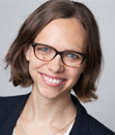
Karen Alim
Max Planck Institute for Dynamics and Self-Organization
Germany
EMBO Practical Course
The major aim of the course is to allow participants to experience modern cell biology at work: not only to see but also to try out in practice how cutting-edge technologies can be used to answer questions at the frontiers of cell biology. It is a tradition that the entire faculty of the Cell Biology and Biophysics Unit of EMBL teaches the course to cover a broad spectrum of techniques.
In addition, being embedded in the collaborative environment at EMBL, the course provides an excellent opportunity for participants and course faculty to discuss current and future challenges in cell biology.
The course will be primarily aimed at postdocs and advanced graduate students who have developed an interest in cell biology. We wish to attract cell biologists who want to acquire quantitative, biophysical, and computational methods as well as scientists (including early-career principle investigators) with different backgrounds (including physics, chemistry, engineering, informatics, etc) who want to use their expertise to address current problems in cell biology. We aim to balance the number of participants with a background in biology and participants coming from other disciplines. A key criterium for selection is the potential benefit of adding novel cell biological methods to the students’ own research plans. Preference will be given to students where there is little or no possibility that the student can acquire these technologies at her/his home institution.
The course will provide an update on the latest developments from the beginning to the end of an experiment. This includes recent advances in fluorescent probe development (e.g. FRET-based activity probes), through new techniques and tricks of biological sample preparation (e.g. mounting of live embryos), novel approaches in biochemistry and molecular biology (e. g. digital PCR), cutting-edge microscopy (e.g. light-sheet imaging of entire organisms, super-resolution light microscopy and correlative light and electron microscopy) and image analysis and mechanobiology – covering the complete range of biological complexity from single molecules to whole organisms.
As the topics of the practicals are closely related to the current research in EMBL laboratories, they will cover many experimental model organisms (yeast, mammalian cells, fly, ascidian) and a wide variety of methods (fluorescence and electron microscopy, biochemistry, in silico approaches, image analysis).
This course is kindly supported by the Cell Biology and Biophysics Unit of EMBL.

Max Planck Institute for Dynamics and Self-Organization
Germany
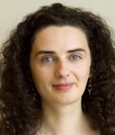
Stanford University
USA
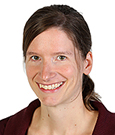
EMBL Heidelberg
Germany
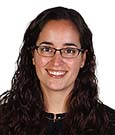
EMBL Heidelberg
Germany
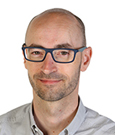
EMBL Heidelberg
Germany

EMBL Heidelberg
Germany
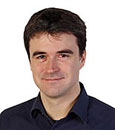
EMBL Heidelberg,
Germany
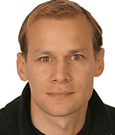
EMBL Heidelberg
Germany
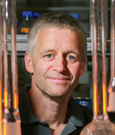
Max Planck Institute for Medical Research
Germany
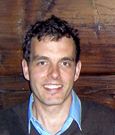
University of Zurich
Switzerland
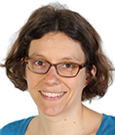
EMBL Heidelberg
Germany
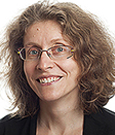
EMBL Heidelberg
Germany
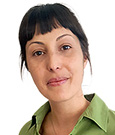
EMBL Heidelberg,
Germany
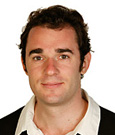
EMBL Heidelberg
Germany
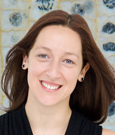
Instituto Gulbenkian de Ciência
Portugal
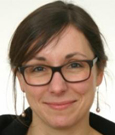
University of Cambridge
UK
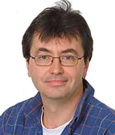
EMBL Heidelberg
Germany
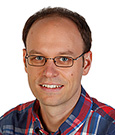
EMBL Heidelberg
Germany
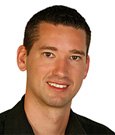
EMBL Heidelberg
Germany
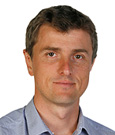
EMBL Heidelberg
Germany
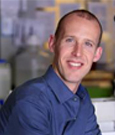
Princeton University
USA
| Lab | People |
Cuylen | Martina Dees – EMBL Heidelberg, Germany Yuki Hayashi – EMBL Heidelberg, Germany Alberto Hernandez Armendariz – EMBL Heidelberg, Germany Daja Schichler – EMBL Heidelberg, Germany |
Diz-Munoz | Carlo Bevilacqua – EMBL Heidelberg, Germany Andrea Imle – EMBL Heidelberg, Germany Hector Sanchez Iranzo – EMBL Heidelberg, Germany Ewa Maria Sitarska – EMBL Heidelberg, Germany |
Ellenberg | Sébastien Avizou – Stilla, France Andrea Callegari – EMBL Heidelberg, Germany Nico Dunkel – Stilla, France Moritz Kueblbeck – EMBL Heidelberg, Germany |
Haering | Sumanjit Datta – EMBL Heidelberg, Germany Indra Alon Shaltiel – EMBL Heidelberg, Germany |
Hufnagel | Ulla-Maj Fiuza – EMBL Heidelberg, Germany Rajwinder Singh – EMBL Heidelberg, Germany |
Koehler | Cristina Pineiro Lopez – EMBL Heidelberg, Germany |
Kreshuk | Dominik Kutra – EMBL Heidelberg, Germany |
Neveu | Amit Mhamane – EMBL Heidelberg, Germany Luigi Russo – EMBL Heidelberg, Germany |
Pepperkok | George Galea – EMBL Heidelberg, Germany Aliaksandr Halavatyi – EMBL Heidelberg, Germany Juan Jung – EMBL Heidelberg, Germany Muzamil Khan – EMBL Heidelberg, Germany Sanjana Singh – EMBL Heidelberg, Germany Malte Paulsen – EMBL Heidelberg, Germany Magdalena Zimon – EMBL Heidelberg, Germany Joanna Zukowska-Kasprzyk – EMBL Heidelberg, Germany |
Prevedel | Carlo Bevilacqua – EMBL Heidelberg, Germany Jakub Czuchnowski – EMBL Heidelberg, Germany Mehmet Ozturk – EMBL Heidelberg, Germany Ling Wang – EMBL Heidelberg, Germany |
Ries | Joran Deschamps – EMBL Heidelberg, Germany Ulf Matti – EMBL Heidelberg, Germany Markus Mund – EMBL Heidelberg, Germany Philipp Hoess – EMBL Heidelberg, Germany Yiming Li – EMBL Heidelberg, Germany Jervis Thevatasan – EMBL Heidelberg, Germany Aline Tschanz – EMBL Heidelberg, Germany |
Schwab | Tobias Dittrich – EMBL Heidelberg, Germany Mandy Boermel – EMBL Heidelberg, Germany Rachel Mellwig – EMBL Heidelberg, Germany Martin Schorb – EMBL Heidelberg, Germany |

EMBL Heidelberg
Germany

EMBL Heidelberg
Germany
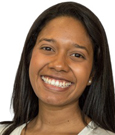
EMBL Heidelberg
Germany
Date: 8 - 17 Sep 2019
Location: EMBL Heidelberg